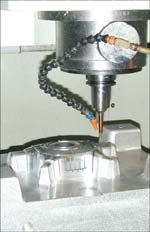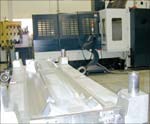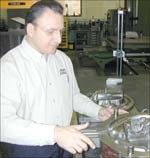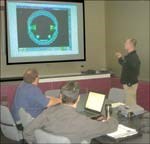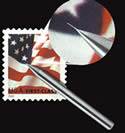The Mold Consultant
This mold maker saves customers time and money by getting involved early in the design of molded parts.
Share



Eifel, Inc., is not a mold shop.
Although the small firm in Fraser, Michigan, does make injection molds for its customers, mold making is the final step in the service it provides, and not every customer asks for this work. It might be more accurate to think of the company as a design and development specialist for molded parts. By applying what it knows about mold making, this company can refine the design of a plastic part to make the mold easier and less expensive to produce. When customers do ask Eifel to make the tooling, the benefit of this early involvement is that Eifel can often make the mold with significantly less leadtime than another supplier would require.
Integration with customers is often seen as a way for various manufacturers, mold makers included, to at least partially protect themselves against competition from cheaper sources overseas. Eifel offers an example of this very integration. For customers, Eifel is a ready and accessible storehouse for some very specialized expertise. One customer has come to rely on this resource so routinely that Eifel is now listed on that company's own organizational chart.
A subject that Eifel's designers understand particularly well is the range of requirements that are associated with class-A surfaces for various automakers. "Class A" refers to those surfaces the consumer can see. The specific, detailed requirements for class-A conformance differ from car maker to car maker, and Eifel personnel have become proficient at refining designs within the parameters of various car companies' class-A standards.
But this understanding of specific design requirements is just one aspect of the company's understanding of design itself—an understanding that includes an appreciation for the value of a product's appearance, along with the recognition that considerable experimentation and modification may be necessary to arrive at a winning design. The company applies its design knowledge and sensitivity to design to realize a very practical benefit for customers.
That benefit is shorter leadtimes. When Eifel can participate early, it can often save its customer from going down "the destructive path of making a design that's not manufacturable," says Rick Hecker, Eifel's president.
But in addition to this—and perhaps more significantly—the company can compress leadtimes by getting an early start on the machining. A recent steering wheel mold illustrated this. The customer's designers were struggling over the appearance of the pushbuttons on the steering wheel, and this struggle was generating a series of changes. Understanding the importance of this part of the design process, Mr. Hecker asked the customer simply to assure him that the parting line would not change. Once he got this assurance, Eifel was able to begin roughing the mold, and even proceeding beyond roughing for some details that would not be subject to change. The company's patented term for this practice is "Simultaneous Product Development and Manufacturing." While the design of the steering wheel was still being actively discussed, the mold machining was well underway.
Another benefit that Eifel can often offer is cost savings. This benefit draws on expertise of a different sort: knowledge of the process. Mr. Hecker is careful to track the expenses of even small aspects of the process, with the aim of knowing exactly how little he can get away with quoting before he starts to lose money. "There is still plenty of money to be made in this business," he says. "But you have to know where your costs are."
Attempting to account for his company's success, Mr. Hecker lists three ingredients. They are: people, process and technology. No doubt you've heard something like this before. In the case of Eifel, Inc., however, these three elements really do provide an apt way to characterize what is distinctive about the company.
Elements Of Success
Begin with the technology. An appreciation for the value of keeping technology current was one of the earlier lessons that this company learned. Mr. Hecker's father came from the old country, founding this company as a pattern shop. The name "Eifel" does not refer to that tower in France; it refers to a fondly remembered region of Germany. The company's transformation into the business it is today began around 1990, when the use of patterns for making molds was rapidly in decline. Eifel shrank to just two people, father and son. However, the company also bought its first CNC machine and its first seat of CAD/CAM software during this period. Today, the company has about 20 employees, including both production and design personnel, and the shop floor has four high speed machining centers in addition to its other CNC machines.
One likely benefit of that period of transition was the way it acclimated the younger Mr. Hecker to dramatic change. Today he tries to remain aggressive about updating the company's technology. A former employee of two big companies (GM and United Technologies), Mr. Hecker sees the freedom to adopt new technologies as one of the more significant advantages of being small and privately held. "I don't have to ask anyone's permission," he says.
Recent changes in technology have occurred both on the shop floor and in the office. In the shop, the company has shifted away from benchwork in favor of cutting to finish dimensions on its newer machining centers. (See box, at right.) In the office, the company has replaced the CAD/CAM system its designers have long used with a different, newly released system that promises to provide much better capabilities (NX-3 from UGS).
Small size is also a virtue when it comes to the employees. Mr. Hecker says that if he had a bigger staff, he would split them into separate working groups in order to maintain the small size that lets them work effectively. Thanks to the easy, friendly, ongoing communication between the company's design and manufacturing personnel, valuable input from manufacturing finds its way into the design work, and molds are manufactured with an appreciation for the customer's precise design intent.
Another valuable characteristic of employees here is confidence. Designers deal directly with customers, and they sometimes save time on design problems by brainstorming solutions in the customer's presence. Similarly, shop personnel are encouraged to save time by finding creative ways to machine challenging features of the part. Building a staff of people who are able to thrive under these requirements is largely just a matter of hiring well and firing well over time. To encourage creativity, Mr. Hecker also tries to maintain an environment in which an employee who champions a promising new idea doesn't suffer negative consequences if the promising idea doesn't pan out.
It might seem ironic—though it shouldn't—that this open environment is coupled with a process that entails strict procedures for logging information. For the sake of avoiding costly misunderstandings later, Eifel documents all communications with the customer. Mr. Hecker avoids doing business with customers who refuse to work this way. And for the sake of understanding costs, the company itemizes its quotes down to small details of the process so that each of these quoted details can be compared to actual costs later on. This monitoring provides the only way for the company to remain current on the cost impact of its technology changes. For example, the move away from benchwork is adding to programming and machining time, for the sake of saving on hand finishing time later. By how much has each of these expense items changed? Mr. Hecker is in the process of learning that answer. Capturing and analyzing intelligence such as this lets Eifel know precisely what prices it should accept.
Talking And Walking
"The key to a whole lot of this stuff is communication," Mr. Hecker says. That means communication with the customer throughout the development of the part, and communication among the departments within Eifel as the project moves through development and manufacturing. Communication is fundamental.
But the knowledge that comes from continually analyzing the company's expenses points to yet another fundamental practice, and Mr. Hecker alludes to this frequently as he describes how he does business. That practice is walking away.
The consequence of knowing his prices well enough to know what to quote is that Mr. Hecker also recognizes when a prospect is pressing for a price that Eifel can't profitably meet. Also, the consequence of analyzing a customer's design with the aim of making it more manufacturable is that Eifel recognizes early on when a customer is determined to commit to a design feature that the shop will struggle to manufacture.
In these cases, Mr. Hecker considers it important to act on what he knows. While not every customer allows the kind of service that Eifel provides, the company has found success by courting the ones that do.
Related Content
Lyndex-Nikken Collets Enable Accurate Small-Diameter Cutting
The MMC Mini-Mini collet chuck is well suited for high-speed machining applications where clearance is needed, such as die mold, aerospace and medical parts.
Read MoreYCM Alliance Five-Axis VMC Enhances Machining Performance
YCM’s RX65+ VMC is engineered for speed, rigidity and accuracy in demanding applications.
Read MorePunch Custom Tooling Supports Range of Manufacturing Processes
Punch Industry designs custom tooling for injection molding, stamping and equipment manufacturing processes.
Read MoreGrob Systems to Host Machining, Automation Technology Event
Grob’s event brings together 21 industry partners for informative seminars and live machining demonstrations highlighting machining strategies for optimizing the production of complex aerospace, medical and mold/die parts.
Read MoreRead Next
Handle With Care
Micro-size drills and end mills don’t have to be difficult to use.
Read More










